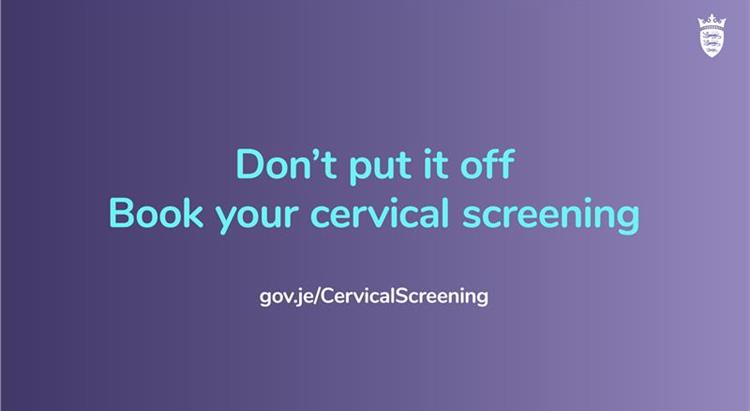28 December 2021

A mum, whose life was saved after cervical screening detected precancerous cells, is fronting a new health campaign urging people not to delay their test.
Donna Beadle is backing the Don't Put It Off campaign which calls on people to attend their free routine cervical screening ("smear test") appointment at their GP surgery or the Le Bas Centre.
Cervical cancer is the most common gynaecological cancer for a person, under the age of 35 with a cervix, although it can occur at any age. Cervical screening identifies Human Papillomavirus Virus (HPV) infections – and the cell changes they cause – before cancer can develop. Women and people with a cervix aged between 25 and 49 should be screened once every three years and women and those with a cervix aged between 50 and 64 should be screened once every five years.
Donna (33) admits that before her diagnosis, she prioritised other things on her to do list over having her cervical screening. The mum to two-year-old Ella Ainslie-Dodd said: "With no symptoms I wasn't concerned that anything would be untoward. However, when I got the results and the first line read 'HPV positive with high-grade dyskaryosis' I immediately burst into tears.
"What did this mean? Why had I been so stupid and not gone for my cervical screening earlier? A week later I was in hospital for a colposcopy; they decided there and then to remove the cells, so I had a loop excision procedure performed straight away.
"Two weeks later I got the letter with the results and the sense of relief I felt was indescribable. I didn't have cancer. I have since been for my six-monthly checkups and there is no HPV or abnormal cells and I can return to three yearly cervical screening.
"But one thing will be different; I will prioritise me, my health and my future – for myself and my family. Please don't feel worried, afraid or embarrassed, cervical screening could save your life like it's saved mine."
Almost 7,000 women and people with a cervix attend for cervical screening in the Island every year. In the last five years in Jersey, 22 women and people with a cervix have been diagnosed with cervical cancer, and one to two people die every year.
Dr Fiona Nelson, Consultant Obstetrician and Gynaecologist, said: "Cervical screening is a vital test which detects the early signs of cervical disease which means treatment can be given early, before abnormal cells turn cancerous.
"Cervical cancer is very rare among young people but it is important to know the symptoms. If you have abnormal bleeding between periods; bleeding after sex; pain during intercourse or abnormal discharge please contact your GP who can request a referral to the gynaecology department at the Hospital for either a gynaecology or a colposcopy assessment.
"A colposcopy is undertaken in a clinic setting and involves taking a closer examination of the cervix using a special magnifying lens. If required, biopsies and treatment can usually be carried out at the clinic without need for admission to hospital."
Professor Peter Bradley, Director of Public Health, added: "Cervical cancer can be prevented and treated if caught early. According to the World Health Organisation, cervical cancer might even be eliminated if enough women are vaccinated against HPV, screened regularly and treated early. Cervical screening is an important way to improve the health of women in Jersey."
More information on cervical screening (including how to register) is available through GP surgeries, the Le Bas Centre, and via the Government of Jersey website.